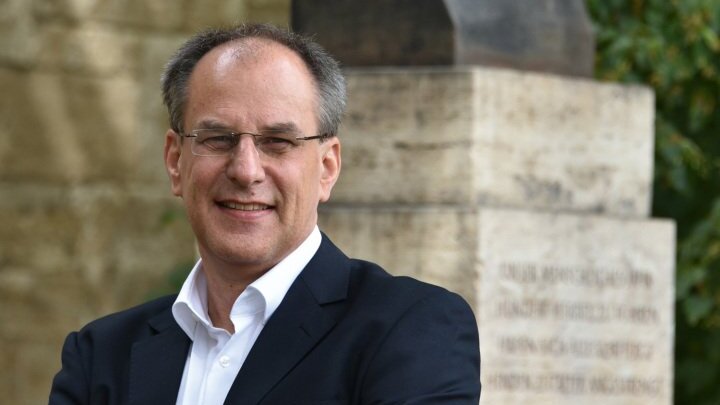
Commercial enterprises are facing growing challenges due to the dwindling supplies of fossil fuels, climate change, and global distribution crises. While political and corporate actors have typically relied on the self-regulating capacity of the free market in times of crisis, there is a growing number of voices calling for the proactive government control of the economy. What is happening at the moment? A digression with Uwe Cantner, an economic expert at the University of Jena.
The Nobel Prizes of the year 2019 have just been awarded: The laureates included three economists who were awarded with the Nobel Prize in Economics for their endeavours to alleviate global poverty. This came as no surprise to Prof. Dr Uwe Cantner. »In 2018, the award was presented to economists who had studied the environmental impact of economic growth, and the work honoured in 2019 once again concerned the negative consequences of our economic system,« explains the economic expert.
Proactive government policies for environmental and social issues
The self-regulation of the market—with minimum state intervention—is the underlying principle that has so far been endorsed by economists, but a fundamental change is taking place in the field of economics. »I have noticed that more and more scholars are assigning a more active role to the state. Things were different twenty years ago,« says Uwe Cantner, who holds the Professorship of Microeconomics at the University of Jena. »The market will definitely continue to fulfil its welfare-increasing role in the future, albeit in line with social and government missions, such as the energy transition«. The environmental and social impact of business cannot be overlooked; it must be tackled by policy-makers through proactive missions.
One of the current research topics examined by Uwe Cantner and his colleagues at the University of Jena is how states can assume their new role through the promotion of innovations. He explains that states used to act more like a »repair shop«, playing a more cautious role when it came to generating and sharing innovations. »Given the complex social, environmental, and demographic challenges, this is no longer enough,« says Cantner. »States now have to pave the way as innovators. They have to control developments in such a way that the economy, environment, and social fabric fit together«.
For example, there is a need for proactive measures to cushion the social effects of innovations that will bring about radical changes, such as e-mobility and technologies for the use of renewable energy sources. However, this does not signify the end of free competition by any means. The role of the state is considered a catalytic one which, in the case of the energy transition, funds the development of non-fossil fuel technology and does not promote investments in fossil fuel technology. »This means the state can guide the economy in the proper direction while companies continue doing business on their own«. It is essential that the state interacts with society to develop missions that do not only reflect the objectives of the political elite, but rather consider the preferences and concerns of the population.
That takes a considerable amount of time and effort, because the stakeholders by no means share the same societal objectives, and the coordination of policies within our political structures is often a laborious task itself. »Missions have to be established and coordinated across all departments and evaluated according to their actual outcome. They also have to outlast electoral cycles,« states Cantner.
By Ute Schönfelder